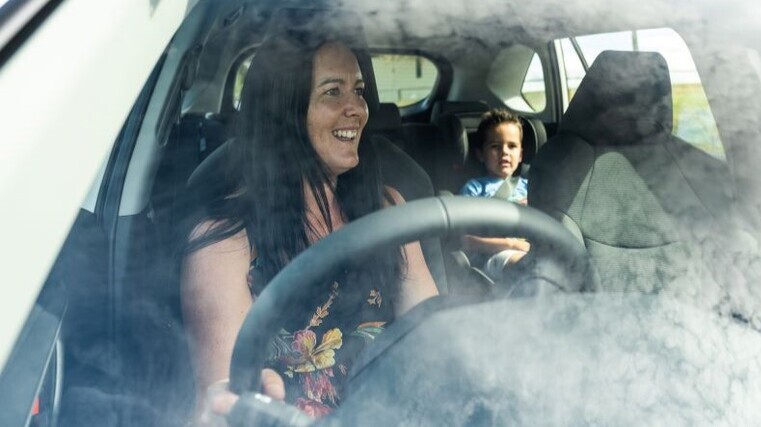In-car phone safety key

New research from Road Safety Education (RSE), providers of the Ryda and Drive Coach programmes, shows why Drive Coach’s partnership between RSE and Toyota NZ is critical.
It reveals a direct link between parents’ cellphone habits while behind the wheel and their children’s future behaviour in cars.
A survey of 260 students from 22 schools in New Zealand and Australia, which was conducted ahead of National Road Safety Week from May 11-18, found students who observed parents taking photos or videos while driving were nearly five times more likely to intend to do the same.
Those who witnessed parents texting were nearly three times more likely to do that themselves, while seeing parents make handheld calls resulted in a 68 per cent increase in the likelihood of replicating this behaviour.
Even legal activities showed significant influence, with students who saw parents making hands-free calls two-and-a-half times more likely to follow suit.
John Elliott, head of programme delivery at RSE Australia, describes the results as a pivotal moment in understanding how dangerous driving habits are formed.
“This research confronts us with an uncomfortable truth,” he says. “Our children are watching and learning from every move we make behind the wheel
“The data shows that when young people observe their parents using phones while driving, they’re dramatically more likely to normalise and ultimately replicate these behaviours.”
“Encouragingly, more than 95 per cent of Ryda students indicated they were likely to use, or have already started using, Ryda strategies for managing phones while driving.
“The include switching on do-not-disturb mode or switching the device off completely and keeping it in the glovebox.
“Parents need to understand that every time they reach for their phone, they’re not just putting lives at immediate risk. They are programming future behaviours that could have consequences for decades.”
It’s research such as this that has driven the development of RSE’s latest best-practice programme in partnership with Toyota NZ and Drive Coach, which aims to get teenagers and their parents on the same page with regards to safe road use.
Those early days on the road are critical, says Susanne Hardy, assistant vice-president at Toyota New Zealand.
“Young drivers and their passengers are over-represented in road-trauma statistics,” she adds. “When something goes wrong, it’s not just the individuals involved who are affected, it’s family, friends, schools and communities.
“Research shows that how parents and caregivers engage with teens around driving can make a huge difference to the decisions young people make behind the wheel, and now we know just how important it is to lead by example.
“At Toyota, we live and breathe a safety culture in all we do. It’s a fundamental part of our DNA, from how we design our vehicles, to how we support our communities.
“We are developing technologies to improve driver safety, but that must be supported by education, behaviour and culture.
“Ryda is the human side of road safety by helping young people build awareness, make better decisions and develop lifelong habits that technology can then support.”
General manager for RSE NZ, Maria Lovelock, emphasises the opportunity presented by the findings.
“These results provide a critical intervention point in the cycle of distracted driving,” she says. “By understanding our actions as parents and caregivers have such a profound influence on the next generation, we have a tremendous opportunity to break the chain.
“When parents model focused, distraction-free driving, they’re not just keeping themselves and their families safe today. They are literally saving lives tomorrow.”
The research also found that 47 per cent of students had noticed their parents being generally distracted while driving, although this broad awareness had less impact on specific phone-related intentions than witnessing particular behaviours.
The most common phone-related behaviour observed was parents making hands-free calls on 63 per cent, handheld calls with 27 per cent and texting on 22 per cent.
Even the least common behaviour – taking photos or videos while driving – has been witnessed by nine per cent of students.
“This week as part of National Road Safety Awareness Week, we’re asking parents to commit not just to put their phones away, but to discuss this choice with their children,” says Elliott.
“Explain why you’re switching to do-not-disturb mode, why you pull over to take a call, why no message is worth a life. These conversations, combined with consistent behaviour, will save lives for generations to come.”





